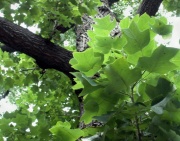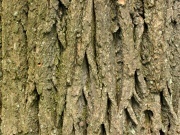Difference between revisions of "Tulip tree"
(username removed) |
(username removed) |
||
| Line 32: | Line 32: | ||
== Authority == | == Authority == | ||
| − | * | + | * R. J. Gettens, G.L. Stout, ''Painting Materials, A Short Encyclopaedia'', Dover Publications, New York, 1966 |
* ''Dictionary of Building Preservation'', Ward Bucher, ed., John Wiley & Sons, Inc., New York City, 1996 | * ''Dictionary of Building Preservation'', Ward Bucher, ed., John Wiley & Sons, Inc., New York City, 1996 | ||
| − | * ''Encyclopedia Britannica'', http://www.britannica.com Comment: "Tulip Tree." | + | * ''Encyclopedia Britannica'', http://www.britannica.com Comment: "Tulip Tree." Encyclopædia Britannica. 2004. Encyclopædia Britannica Premium Service. 21 May 2004 . |
| − | * | + | * G.S.Brady, ''Materials Handbook'', McGraw-Hill Book Co., New York, 1971 Comment: p. 825 |
* ''Van Nostrand's Scientific Encyclopedia'', Douglas M. Considine (ed.), Van Nostrand Reinhold, New York, 1976 | * ''Van Nostrand's Scientific Encyclopedia'', Douglas M. Considine (ed.), Van Nostrand Reinhold, New York, 1976 | ||
| − | * | + | * Random House, ''Webster's Encyclopedic Unabridged Dictionary of the English Language'', Grammercy Book, New York, 1997 |
| − | * | + | * External source or communication Comment: Hardwood Manufacturers Institute, Memphis, Tenn.: air-dry weight = 28 pcf |
* ''The American Heritage Dictionary'' or ''Encarta'', via Microsoft Bookshelf 98, Microsoft Corp., 1998 | * ''The American Heritage Dictionary'' or ''Encarta'', via Microsoft Bookshelf 98, Microsoft Corp., 1998 | ||
| − | * | + | * George Savage, ''Art and Antique Restorer's Handbook'', Rockliff Publishing Corp, London, 1954 |
[[Category:Materials database]] | [[Category:Materials database]] | ||
Revision as of 07:50, 24 July 2013
Description
A tall, hardwood magnolia tree, Liriodendron tulipifera, native to the Atlantic coast of North America. Tulip trees have a soft, lightweight wood with a pale yellow to green brown color. It was used in the 19th century for house construction (framing and shingles). Tulip tree wood was later used for furniture, inlays, painting panels, veneer, and toys. The leaves of the tulip tree contain a dye that gives a strong gold color with a chrome mordant. It has fair lightfastness.
Synonyms and Related Terms
Liriodendron tulipifera; tulipier de Virginie (Fr.); tulipier (Fr.); liriodendron (Fr.); tulipero (Esp.); tulipeiro (Port.); Liriodendro (It.); Albero dei tulipani (It.); yellow poplar; tulip poplar; saddleleaf tree; whitewood; canary whitewood
Other Properties
Annuals rings are not distinct. Grain = fine. Texture = fine
| Density | 30 ppcf |
|---|
Additional Images
Authority
- R. J. Gettens, G.L. Stout, Painting Materials, A Short Encyclopaedia, Dover Publications, New York, 1966
- Dictionary of Building Preservation, Ward Bucher, ed., John Wiley & Sons, Inc., New York City, 1996
- Encyclopedia Britannica, http://www.britannica.com Comment: "Tulip Tree." Encyclopædia Britannica. 2004. Encyclopædia Britannica Premium Service. 21 May 2004 .
- G.S.Brady, Materials Handbook, McGraw-Hill Book Co., New York, 1971 Comment: p. 825
- Van Nostrand's Scientific Encyclopedia, Douglas M. Considine (ed.), Van Nostrand Reinhold, New York, 1976
- Random House, Webster's Encyclopedic Unabridged Dictionary of the English Language, Grammercy Book, New York, 1997
- External source or communication Comment: Hardwood Manufacturers Institute, Memphis, Tenn.: air-dry weight = 28 pcf
- The American Heritage Dictionary or Encarta, via Microsoft Bookshelf 98, Microsoft Corp., 1998
- George Savage, Art and Antique Restorer's Handbook, Rockliff Publishing Corp, London, 1954


